

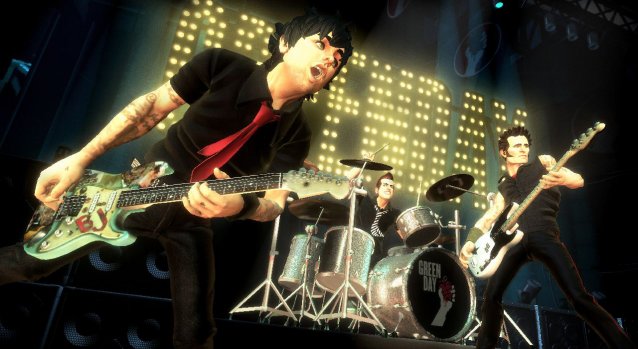
Let's talk punk rock for a bit.
Last month at the annual IGF Awards, developer of Monaco and host for the evening Andy Schatz compared independent games to punk rock. “Like it or not, we're not The Clash anymore,” said Schatz. “We're Green Day.”
The implication, of course, was that independent games had gone mainstream, that in their success they were no longer a rebellious voice for change, now accepted and even welcomed by the industry at large.
The subsequent Game Developer Choice Awards certainly bolstered Schatz's argument. Though these latter awards are traditionally a big-budget affair, only two AAA games won anything that night. The rest of the awards were taken home by the little guys. Journey won six awards alone—not a title made by one guy in a garage, but still a much smaller team than traditional flagship titles.
So as GDC wound down on Wednesday, some of us sat and reflected on the role of independent games. Were they Green Day? Was that it?
Thursday, it appeared Schatz might have spoken too soon.
It started early. Every year at GDC, IGF Award nominees are given booths on the expo floor. GDC attendees visit these booths to check out and play demos of the best independent games, both released and unreleased. Richard Hofmeier's game Cart Life was this year's winner of the IGF's Seamus McNally Grand Prize (as well as the Nuovo Award and award for Excellence in Narrative). On Thursday, eager GDC attendees showed up to the expo floor hoping to play Cart Life only to find...
...not Cart Life. In fact, “Cart Life” had been crossed off the booth's placard in spray paint. The computer screen displayed Howling Dogs by Porpentine, a critically-acclaimed piece of interactive fiction made in Twine. “What's going on?” was the predominant question I heard from attendees milling around the booth.
Mere minutes later, I watched Hofmeier stand on a stool and spray Howling Dogs onto his board. Then he scrawled “By Porpentine” below in permanent marker. If it wasn't clear before, it was now. Cart Life was done having a presence at GDC 2013. As it turns out, Hofmeier simply wanted people to see Howling Dogs, and thought Cart Life had overstayed its welcome.
Punk rock. But that was merely a taste of what was to come.
Later in the day, my Twitter feed started blowing up with independent developers discussing an event called “Lost Levels” out in the Yerba Buena Gardens, a park north of where GDC is held. The first sight upon wandering outside was developer Andrew Vanden Bossche dressed in a maid's costume, extolling the virtues of cuteness in gaming—an image easily as captivating and expressive as Paul Simonon smashing his bass for London Calling.
Lost Levels was the brain-child of four developers: Harry Lee, Fernando Ramallo, Ian Snyder, and Robert Yang. “You should make it really clear that we're not against GDC,” says Lee when I interview the four organizers later. The others agree. Ramallo continues, “This could only happen at GDC because people were here.”
So let me reinforce: they personally aren't against GDC.
However, the four were captivated with the idea of organizing an “unconference” during GDC. “I think people have been wanting to do this for a while,” says Yang, “but I think only now were we stupid enough to kind of say, 'No, let's actually do it.'” The four developers began to conceptualize a series of talks running parallel to GDC. While the most picturesque portion of GDC is the expo floor, it's common knowledge amongst attendees that the exclusive talks and workshops throughout the week are more useful. Unfortunately, even the cheapest pass for these talks runs at least $695, and includes only a small subset of the sessions. An all-access pass will run you at least $1,475.
While $1,475 might not be expensive for a professional conference, it's certainly out of the price range of many of the smaller, independent developers that now make up a sizable amount of GDC attendees. Some developers can barely make rent, let alone shell out the money for a high-level GDC pass. Lost Levels was a reaction to that exclusivity—free to attend, open to all perspectives, and where anybody could give a presentation no matter their background or experience.
“GDC is a fun ritual,” says Yang, “but at the point where it stops being fun and people are getting left out or excluded and saying, 'Oh I don't have $400 to spend on a pass,' or some absurd amount of money, it's kind of like, 'Well if we just want to hang out and talk with each other, why can't we just do that anywhere?' You don't need GDC for that.”
“We want to have as many different voices as possible,” Lee adds. “We want to have a system where those voices can be heard and the important messages can get out, which doesn't always happen with the rigorous hierarchies of some conferences.”
The four began inviting developers to speak at this unconference outside of GDC proper. The format mirrored the famed GDC microtalks (coincidentally occurring at the same time as Lost Levels back in the Moscone Center). Speeches were limited to between five and ten minutes in length, and could be about anything the speaker desired.
Three tarps were laid out in the Yerba Buena Gardens, designated Worlds 1, 2, and 3. Each World had its own separate speaker at any given moment, allowing attendees to migrate between talks at will. Not interested in the talk about independent development as the savior of niche genres? Simply walk over to one of the other two areas and see if they had something you'd be more interested in.
“The entire thing just felt like one giant celebration,” says Lee. He estimates that Lost Levels peaked around 250 people, though probably 400-500 rotated through over the course of the day as news of the event spread across Twitter.
Though some talks were planned on ahead of time, Lost Levels evolved over the course of the day. The organizers had laid out a large cardboard schedule and some sticky notes on the lawn between the three worlds. Anyone who wanted to give a talk could write their name and the title of their impromptu talk on a note and stick it to the schedule. It was that easy.
“Presenting a post-indie universe is problematic in many ways,” says Lee. “It negates and is actually quite offensive to the people who are fighting for causes that are not yet represented in our culture, in games culture, and they're not celebrated and their voices are not being heard.”
So what were these talks about?
Everything.
I'm only slightly exaggerating. Yang says the team made an effort to invite under-represented groups especially, such as women, to counterbalance the “monoculture” of the games industry. Attendees were students, developers, artists, designers, fans, critics—a broad sampling of the industry, with broad tastes. Some were well-known already amongst the industry. Some were newcomers just getting into the games world. I can only speak for the talks I saw, but I assume the rest of the event had just as much range.
Christine Love, author and developer of Digital: A Love Story and Analogue: A Hate Story agrees, was part of the original Lost Levels lineup. “Robert Yang asked me to do a talk at Lost Levels and I was very excited,” she says. Her Lost Levels talk concerned the role of cuteness in games, similar to Andrew Vanden Bossche—in fact, it was Love's maid outfit Vanden Bossche was sporting. She lent it to him.
“We need to be less about giant, grandiose bullshit and more about cute lumps of sincerity. We have a lot of—” She pauses, flexes her muscles, and grunts at me. “And a lot less of—“ Now she folds her hands under her chin, looks up at the ceiling, and sighs. “I think we should have a wide range of that.”
But Lost Levels concerned more than cuteness in game design. There was a surprising amount of range packed into the afternoon.
One talk I saw involved the mechanics of commedia dell'arte and game narrative. Colleen Macklin and John Sharp hosted a segment called Roll Call where they asked the audience to recount the first moment they knew that games were “for them.” Merritt Kopas gave a talk about eroticism in games. Jim Crawford (Frog Fractions) used his talk as a Q&A session with the audience, answering everything from, “How long to develop?” to “Who's your daddy and what does he do?” Favorite indie developers stood next to people who've never even considered developing a game, and every voice was given equal respect.
Developer Jack Sanders opened an impassioned talk with, “I'm Jack and fuck everything,” before discussing the effects games have on culture. My favorite quote of his came when he discussed broadening how games approach conflict. While the argument has been made before, I think Sanders summarized it well: “We don't have to make video games about shooting stuff. We could, but there are people already doing that.”
Lyndsey Jane Moulds, who says as a student she bounced between “something like seven majors,” discussed how games need to be more responsible about borrowing content from other media. She argued that independent studios have an advantage over larger development teams in that they can react faster to trends and thus stay at the forefront of innovation. Independent games set standards for borrowing content that are then adapted by these larger studios.
Both exceedingly interesting talks, from people who weren't given a chance to speak at GDC proper.
As Lee says, “There are things that the format can only do when it's flexible or inclusive in the way Lost Levels is.” He continues, “I think we were really lucky having a critical density of really engaged, intelligent, switched-on people. That's what made the event so much better than our wildest imaginations.”
As for the future?
“We'd like to maintain this level of conversation that may not be able to occur if this was part of GDC, so I think we can definitively say that we would not like to be part of GDC,” says Lee.
Yang adds, “I would agree with that. I think that GDC is very good at some things, but I think it's not good at being fast. There we were just improvising the schedule. Being spontaneous. With GDC, I don't think we'd have that sort of flexibility or spontaneity.”
“I will reiterate,” says Lee, “we are not against GDC. We think that the two can exist in parallel.”
So please, everyone, stop emailing them and asking whether they're against GDC. They're not. Lost Levels supplements GDC, not replaces.
“The point is, we don't all want the same thing and the more avenues we can have, the more voices we can hear and the more discussions we can spark and provoke people with, the better. That's how we grow. That's how we mature as an industry, as a medium, as people. And that's what Lost Levels provides,” says Lee.
Punk. Rock.
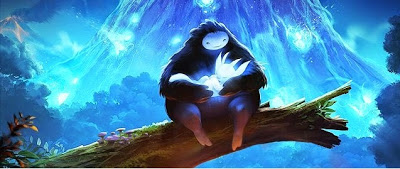

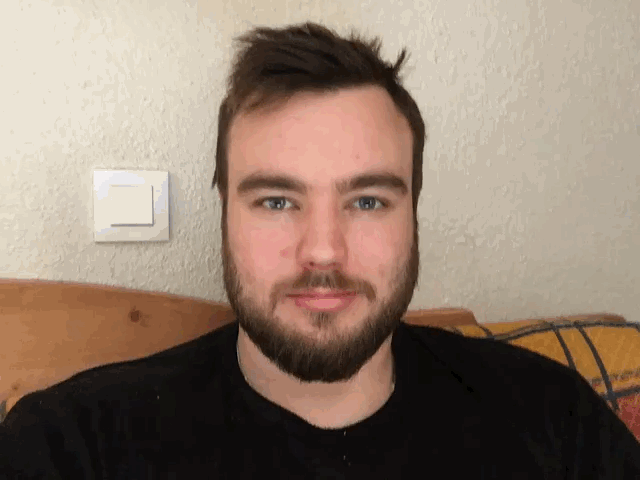
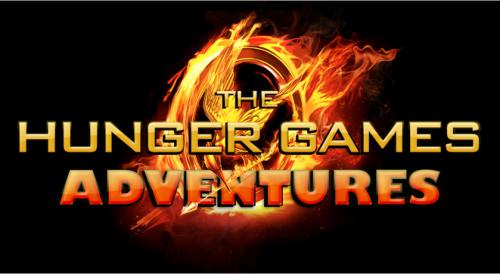
 Rainbow 6 Siege Operator Skills and Weapons List
Rainbow 6 Siege Operator Skills and Weapons List Top 20 Wonky Video Game Print Ads
Top 20 Wonky Video Game Print Ads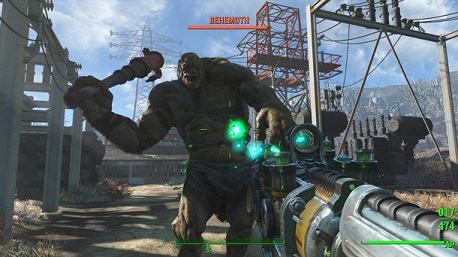 Fallout 4: Minimum / Recommended PC Specs and useful info
Fallout 4: Minimum / Recommended PC Specs and useful info Warriors Orochi 3 Wiki – Everything you need to know about the game .
Warriors Orochi 3 Wiki – Everything you need to know about the game . Watch Dogs Upgrade System and Abilities Explained
Watch Dogs Upgrade System and Abilities Explained